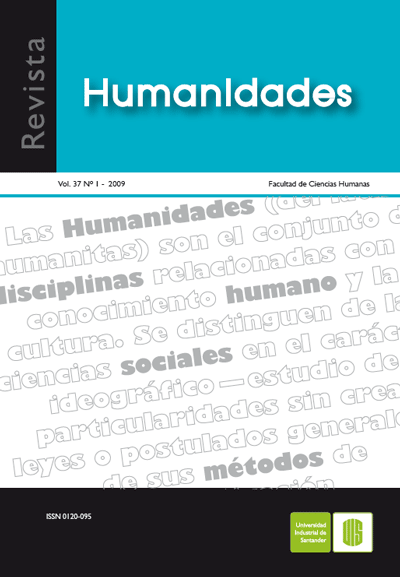APUNTES SOBRE EXPERIENCIAS HISTÓRICAS CON IMPORTACIONES DE CONCEPTOS DEL DESARROLLO EN AMÉRICA LATINA
Resumen
RESUMEN
El artículo profundiza la perspectiva histórico-cultural para dar razón de los problemas de desarrollo en América Latina, la cual se refiere, por un lado, a los malogrados intentos de adaptar estrategias de desarrollo europeas y estadounidenses y, por otro, también se ocupa de los problemáticos intentos de construir una identidad y estrategias de desarrollo propiamente latinoamericanas. Aquí se puede plantear la hipótesis de que el desarrollo social en América Latina se ha quedado por detrás del desarrollo económico y, a su vez, el desarrollo económico por detrás de su potencial, a raíz de no haber sido posible armonizar los conceptos de desarrollo importados con los rasgos culturales y sociales típicos del subcontinente, así como tampoco ha sido posible crear conceptos propios que a su vez hayan logrado esta armonía. La modernización en América Latina siempre ha sido un proceso que de antemano excluía a la población indígena, la cual se hacía sentir además como un conflicto cultural entre valores y normas autóctonos, y estándares de la modernidad importados. Desde este conflicto nunca se ha podido desarrollar una síntesis entre las distintas culturas con una vigencia a largo plazo, ni tampoco con el potencial de generar respuestas para ese conflicto.
ABSTRACT
The article deepens the historical-cultural perspective to account the problems of development in Latin America. The mentioned perspective is based on, by one side, the unsuccessful attempts to adapt European and American (from the United States) development strategies and, by another one, the problematic proposals to construct an identity, as well as properly Latin American strategies of development. Here the hypothesis that can be raised is that the social development in Latin America has remained behind the economic development and, also, the economic development has remained behind its potential. This can be explained as a result of, on the one hand, not having harmonized the foreign concepts of development with the typical cultural and social characteristics of the subcontinent, and, on the other one, not having created proper and own concepts that have obtained this harmony as well. The modernization in Latin America has always been a process that excluded the indigenous population, which participated, moreover, as acting in a cultural conflict between values and native norms, and imported standards of modernity. This conflict has not made possible the development of a synthesis between the different cultures with a lasting validity and with the potential to generate answers for that conflict.
